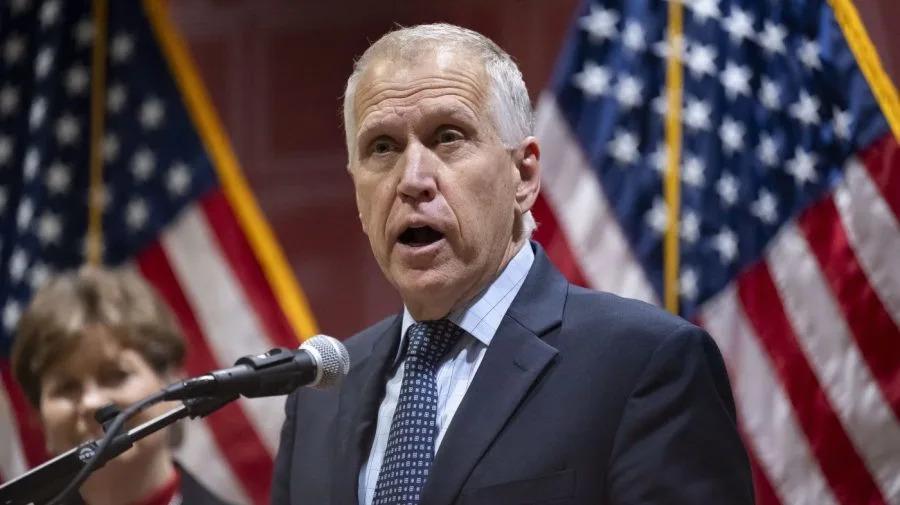North Carolina Senator Thom Tillis, a strong supporter of the MAGA (Make America Great Again) movement led by former President Donald Trump, surprised many when he decided to vote against the bill Trump calls the “Big Beautiful Bill.” This bill, if passed, would significantly cut vital government services such as Medicaid, Medicare, SNAP (Supplemental Nutrition Assistance Program), and other programs, impacting millions of Americans.

In the context of government assistance programs and public services being a crucial part of America’s social safety net, Tillis’ decision has garnered significant attention from both his Republican colleagues and critics of Trump’s policies. Senator Tillis, who has long supported Trump’s policies, particularly in previous elections, has now shown a somewhat unexpected resistance to a bill that Trump sees as a major concern.
However, while many view Tillis’ decision as a responsible move, reflecting an awareness of the negative impacts this bill would have on low- and middle-income citizens, some believe he has acted too late. Many had expected Tillis to voice his opposition to Trump’s policies much earlier, rather than waiting until he announced that he would not be seeking re-election in next year’s midterm elections. This delayed resistance has led many to question his true motivations behind the decision and whether he genuinely wants to bring about change or is simply trying to protect his political image in front of voters and his party.
Trump’s “Big Beautiful Bill,” with its heavy cuts to public services, has faced strong opposition from many groups, particularly those advocating for the poor and healthcare organizations. Programs like Medicaid and Medicare, which are essential for low-income individuals and the elderly, would be heavily impacted if the bill passes. Additionally, nutrition assistance programs like SNAP would also face cuts, forcing millions of poor families to struggle even more to maintain their daily lives.

Tillis’ decision to oppose this bill has been seen by many as a responsible act of defiance, especially as he aligns himself with those directly affected by cuts to public services. However, the fact that he only voiced this position near the end of his term and after announcing he would not run for re-election has led to criticism that his move lacks strength and decisiveness.
Many critics argue that Tillis missed the opportunity to stand up for his constituents’ interests and oppose policies he knew would harm many people in his state. If he truly cared about these issues, he should have spoken out earlier and opposed bills like the “Big Beautiful Bill” from the start. However, the timing of his decision, when he no longer has the chance to seek re-election, makes his actions appear to be more about protecting his political image than genuinely pushing for positive change in the community.
Sharon Reed, a political analyst at Rebel HQ, criticized Tillis’ actions, stating that they reflect a lack of decisiveness in protecting the values he has long claimed to support. Reed emphasized that the policies Trump proposed not only harm citizens but could also weaken America’s social safety net. She believes that if Tillis truly wanted to create change, he should have acted more forcefully and sooner, rather than waiting until he had no political power left.
Ultimately, Senator Tillis’ decision raises a larger question about political responsibility and the motivations of politicians in protecting citizens’ rights. Did Tillis oppose the bill for the benefit of his constituents, or was he simply protecting himself in the face of political change? The reality is, regardless of his actions, what happens next will have a significant impact on his image and credibility in the eyes of the public and the Republican Party.






